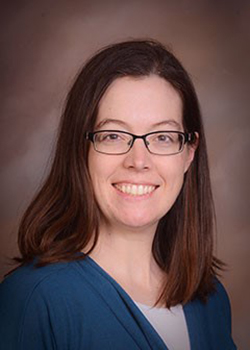
Ann Wheeler is a Professor of Mathematics Education at Texas Woman’s University in Denton, Texas, USA. Her research interests focus on the use of technology and children’s literature in the mathematics classroom.
1. What’s your earliest memory of doing mathematics?
One of my earliest memories of mathematics was trying to complete a multiplication of fives timed exam in one minute. I can still remember the stress of the timed test and how that mathematics stress and anxiety follows so many students throughout their experiences with mathematics.
2. How has mathematics education changed in the time you have been involved in it?
Since I have been involved with mathematics education, the focus has been on the conceptual understanding of mathematics for student learning. When I was young, we did not use blocks and other manipulatives to build understanding of concepts. I love being able to relearn some of these concepts through these ways and to teach my students in this way. In addition, having children during the time that I have been developing my own teaching style has been wonderful; seeing how both of my children learn differently (one being more conceptual and one being more procedural in nature) has shown me how I need to have different tools to teach different learners.
3. Tell me about a time in your career when something totally flabbergasted you.
My own children’s vast styles in learning has been one of the greatest joys in my own learning of how to teach mathematics. My youngest looks at mathematics so much differently than myself that it is wonderful to learn through his eyes.
4. Do you practise mathematics differently in company?
I tend to like to have time by myself when I am learning mathematics. I want time to truly think about what is happening and make sense of the problems without others’ thoughts interfering with mine. Once I feel I have a direction or true comprehension, then I talk to others and share thoughts.
5. Do you think a brilliant maths teacher is born or made?
I think a brilliant maths teacher can be born or made. Some children just really excel in mathematics and 'see' it from the start. Others need more time to ponder about the mathematics but come up with brilliant strategies that are just wonderful to see and discuss as a class.
6. What’s the most fun a mathematician can have?
I love seeing those 'light bulb' moments where students truly understand the mathematics and enjoy the deep learning happening.
7. Do you have a favourite maths joke?
I do not have a favourite mathematics joke but love all the fun mathematics t-shirts that you can buy online. I have over 30 of them.
Join the conversation: You can tweet us @CambridgeMaths or comment below.